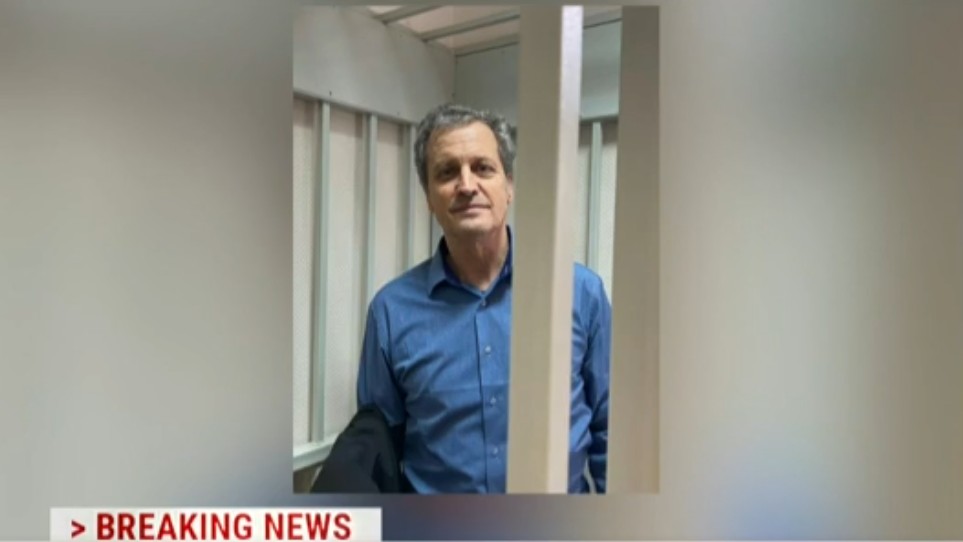
In a significant diplomatic development, Marc Fogel, an American teacher detained in Russia since 2021, has been released following negotiations led by the Trump administration.
Fogel’s release marks a rare moment of cooperation between Washington and Moscow, even as broader geopolitical tensions persist, particularly over the ongoing war in Ukraine.
Fogel, who was arrested in August 2021 for bringing medical marijuana into Russia, had been serving a 14-year sentence. His case drew widespread attention in the United States, with advocates and family members arguing that his detention was disproportionate and politically motivated. The Biden administration had classified him as “wrongfully detained” in late 2024, but it was under President Donald Trump’s leadership that the breakthrough occurred.
The Negotiation and Its Implications
The release was orchestrated by Steve Witkoff, Trump’s special envoy to the Middle East, who expanded his portfolio to include negotiations with Russia. Witkoff’s visit to Moscow, reportedly conducted under a veil of secrecy, culminated in Fogel’s release as part of what the White House described as an “exchange.” While details of the exchange remain unclear, National Security Advisor Mike Waltz characterized the move as a “gesture of good faith” from Russia, signaling potential progress toward broader diplomatic goals, including ending the war in Ukraine.
“President Trump, Steve Witkoff, and the president’s advisors negotiated an exchange that serves as a show of good faith from the Russians and a sign we are moving in the right direction to end the brutal and terrible war in Ukraine,” Waltz said in a statement.
The timing of Fogel’s release is notable. It comes as the Trump administration seeks to recalibrate U.S.-Russia relations, with Trump himself promising during his campaign to end the Russia-Ukraine war within 24 hours of taking office. While such a timeline remains implausible, the release of Fogel could be seen as a symbolic step toward opening channels of communication between the two nations.
A Shift in U.S.-Russia Dynamics?
Fogel’s release also underscores a shift in Moscow’s approach to Washington. Under the Biden administration, Russia had shown little willingness to engage in prisoner exchanges or other conciliatory gestures. The Kremlin’s decision to release Fogel now may reflect a strategic calculation to improve relations with the new administration, particularly as Russia faces mounting economic and military pressures from its prolonged conflict in Ukraine.
For Trump, the release is a political win that aligns with his broader narrative of being a dealmaker capable of achieving results where others have failed. It also provides a stark contrast to the Biden administration’s handling of similar cases, such as the high-profile detentions of Paul Whelan and Evan Gershkovich, both of whom were released in separate exchanges but without Fogel’s inclusion.
The Human Cost of Geopolitics
For Fogel’s family, the release is a long-overdue moment of relief. In a statement, his wife, Jane Fogel, and sons, Ethan and Sam, expressed their gratitude: “We are beyond grateful, relieved, and overwhelmed that after more than three years of detention, our father, husband, and son, Marc Fogel, is finally coming home.”
Fogel’s case highlights the human cost of geopolitical tensions. His arrest and subsequent imprisonment were widely seen as part of a broader pattern of Russia using American detainees as leverage in its fraught relationship with the United States. Advocates for Fogel had long argued that his case was emblematic of the risks faced by Americans traveling abroad, particularly in countries with adversarial relationships with Washington.
Broader Implications for U.S. Foreign Policy
While Fogel’s release is undoubtedly a positive development, it raises questions about the broader implications for U.S. foreign policy. What concessions, if any, were made to secure his freedom? And what does this mean for the Trump administration’s approach to Russia and Ukraine?
The lack of transparency surrounding the exchange has already drawn criticism from some quarters. Without clarity on what the U.S. offered in return, it is difficult to assess the long-term impact of this deal on America’s strategic interests. Moreover, the focus on Fogel’s release risks overshadowing the broader challenges of navigating U.S.-Russia relations in the context of the Ukraine war.
For now, Fogel’s return to American soil is a moment of celebration for his family and supporters. But as the dust settles, the questions surrounding his release—and its implications for U.S. diplomacy—will likely linger. In the complex calculus of international relations, even moments of triumph are rarely without trade-offs.
